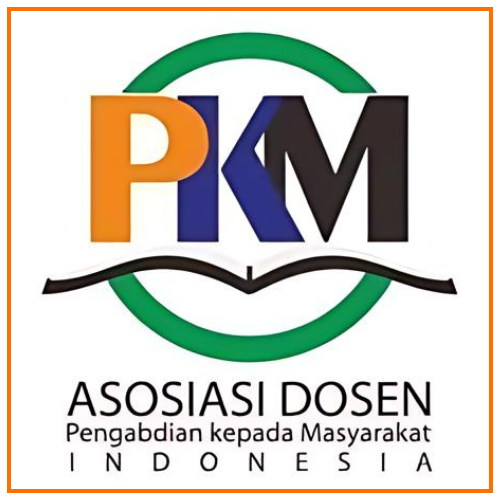A Habitual Action of Listening to Songs in a Writing Class
Abstract
Keywords: vocabulary mastery; habit of listening to the song.
Full Text:
PDFReferences
Alqahtani, M. (2015). The importance of vocabulary in language learning and how to be taught. International Journal of Teaching and Education, Vol. III.
Anggraini, D. (2020). Advances in Social Science, Education and Humanities Research, vol. 48. Atlantis Press SARL.
Darnton, Andrew. (2011). Habits, Routines and Sustainable Lifestyles. London: Department of Environment and Food and Rural Affairs. Dictionary.com.
Dewi, Y. N., Zaim, M., & Rozimela, Y. (2022). Interactive Learning Using E-Learning Module in Learning English for Senior High School: A Review of Related Articles. JELITA: Journal of Education, Language Innovation, and Applied Linguistics, 1(2), 125-134.
Fatimah, A. S., & Santiana, S. (2017). Teaching in 21st century: Students-teachers’ perceptions of technology use in the classroom. Script Journal: Journal of Linguistic and English Teaching, 2(2), 125.
Griffee, D. (1988). Songs and music techniques in foreign and second language classrooms. Cross Currents, 15(1), 23-35.
Hatch, E., & Brown, C. (1995). Vocabulary, Semantics, and Language Education. Cambridge University Press, 40 West 20th Street, New York, NY 10011-4211 (hardback: ISBN-0-521-47409-4; paperback: ISBN-0-521-47942-8).
Hasan, H. and Nanang, B. (2017). The Correlation Between Vocabulary Mastery And Writing Skill Of Secondary School Students, Vol. 1 No. 2.
Hiebert, E. H., & Kamil, M. L. (2005). Teaching and Learning Vocabulary: Bringing Research to Practice. Routledge.
Marzuki, A. G., Santiana, A. K., Alek, N. F., Darmawati, B., & Bin-Tahir, S. Z. (2021). The Teaching of EFL Vocabulary through Anticipatory Learning Strategy in Islamic Higher Education Context in Indonesia.
Neal, D., et al. (2015). The Science of Habit: Creating Disruptive and Sticky Behavior Change in Handwashing Behavior. Washington D.C., USA.USAID/WASHplus Project.
Ng, D. T., Ng, E. H., & Chu, S. K. (2022). Engaging students in creative music making with musical instrument application in an online flipped classroom. Education and Information Technologies, 27(1), 45-64.
Santiana, S., & Fatimah, A. S. (2017). Prezi, Cloud-Based Presentation, for Teaching: How Is It Interesting? EduLite: Journal of English Education, Literature and Culture, 2(2), 445-456.
Saito, K., Macmillan, K., Kroeger, S., Magne, V., Takizawa, K., Kachlicka, M., & Tierney, A. (2022). Roles of domain-general auditory processing in spoken second-language vocabulary attainment in adulthood. Applied Psycholinguistics, 1-26.
Widya, T., Fatimah, A. S., & Santiana. (2020). Students’ Feedback as a Tool for Reflection: a Narrative Inquiry of an Indonesian Pre-Service Teacher. Journal of Teaching & Learning English in Multicultural Contexts (TLEMC), 4(1), 1–11. http://jurnal.unsil.ac.id/index.php/tlemc/article/view/1775.
Wijirahayu, S., & Dorand, P. (2018). Affective strategies, attitudes, and a model of speaking performance development for engineering students. In Journal of Physics: Conference Series (Vol. 948, No. 1, p. 012024). IOP Publishing.
Wijirahayu, S., Priyatmoko, H., & Hadianti, S. (2019). Critical, Logical & Creative Thinking in a Reflective Classroom Practices. International Journal of English Teaching (IJET) volume, 8.
Wijirahayu, S., & Armiati, A. (2020). Exploring Values through Cooperative Integrated Reading and Composition. In UICELL Conference Proceeding (pp. 193-212).
Wijirahayu S. & Rokhmani. (2021). A Case Study of Teachers’ Beliefs and Strategies in Assessing Young Language Learners Prior to the Covid-19 Pandemic. Research Methodology Concepts and Cases. Maharashtra-India: Novateur Publication, 227-239.
Wijirahayu, S., & Kamilah, S. (2021, July). Students’ Writing Anxiety, Reading Motivation and Writing Achievement during Covid-19 Pandemic. In Proceeding of International Conference in Education, Science and Technology (pp. 76-84).
Wijirahayu, S & Muliya, A.P. (2022).A Potential of Local Wisdom from HAMKA Literary Works in Building the Character of Millennial. Awareness to Education Changes and Content Delivery Method. Novateur Publication. PDF view of the file CHAPTER 12.pdf (novateurpublication.com).
Wijirahayu S., 2022. Mindset and Learners’ Literacy Development During the Covid-19 Pandemic. Human Responsibility on Environmental and Social Issues. Maharashtra, India: Book Shore International, 1-9.
Wijirahayu, S & Larasati, A (2022). An Exploration of English Online Learning Platforms in a Culinary Art Vocational School. Strengthening Society in Grounding National Values in Indonesia. Novateur Publication. https://www.novateurpublication.com/index.php/np/catalog/view/124/102/1323-1.
DOI: https://doi.org/10.37058/jelita.v2i1.6539
Refbacks
- There are currently no refbacks.








Journal of Education, Language Innovation, and Applied Linguistics
Lembaga Penelitian, Pengabdian Kepada Masyarakat dan Penjaminan Mutu Pendidikan (LP2M-PMP) Universitas Siliwangi
Jalan Siliwangi Number 24, Kota Tasikmalaya - 46115
West Java, Indonesia











